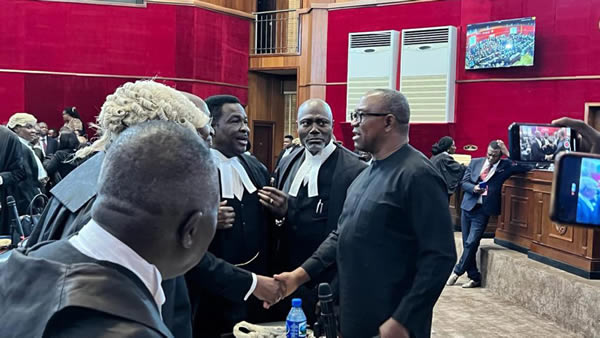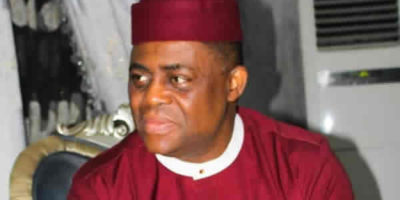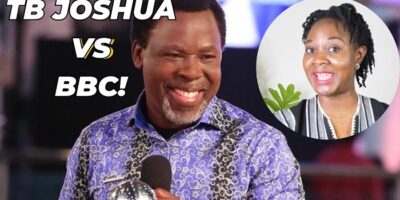Nigeria’s Electoral Roller-coaster: PEPT Verdict Inflicts Visceral Sores

By Jude Obuseh
In a startling turn of events on Wednesday, September 6, 2023, the Presidential Elections Petition Tribunal (PEPT) delivered a ruling that sent shockwaves through Nigeria’s political landscape, as it nullified the petitions filed by Atiku Abubakar and the People’s Democratic Party (PDP), Peter Obi and the Labour Party, and the Allied Peoples Movement (APM), challenging the declaration of Bola Tinubu of the All Progressives Congress (APC) as the winner of the February 25, 2023 Presidential poll.
All the odds appeared stacked against the petitioners from the outset. In their ruling, the five justices assigned to the case placed the blame squarely on the petitioners, citing their failure to produce sufficient evidence of electoral malfeasance. This ruling came despite the well-documented fact that the Independent National Electoral Commission (INEC), under the leadership of Professor Mahmoud Yakubu, had blatantly refused to provide the petitioners with crucial documents, in open defiance of the tribunal’s orders.
It’s worth highlighting, however, that if the 2014 attempt by the National Assembly to pass legislation that would have shifted the onus of proving the conduct and regularity of elections in the country from litigants to the Independent National Electoral Commission (INEC) had been successfully passed into law, the resulting act would have relieved petitioners of the burden of proof, placing it squarely on INEC’s shoulders, which would have notably eased the challenges petitioners typically encounter when seeking essential documentary evidence to support their claims.
However, even before Wednesday’s verdict, no reasonable person could have harboured much doubt about the likely outcome. The utterances and body language of certain government officials in the lead-up to D-Day left little room for speculation. Regrettably, the majority of Nigerians have lost faith in the country’s courts as bastions of justice, and their expectations aligned with what has become an accepted norm in Nigerian politics.
The stark reality is that in Nigeria, the pursuit of electoral mandates through the courts has become an elusive dream, a mirage. This is a fact even acknowledged by legal experts. It’s a disheartening situation, one that adds another layer of concern to the outcome of this particular case.
Democracy, as it exists in Nigeria, has never been a concrete reality. The Nigerian people have seldom had the opportunity to truly determine their leaders; that privilege often rests with the demagogues who wield state power and its vast resources. Through methods such as closing off the political space, weakening state institutions like the Judiciary and the security establishment, fostering unchecked impunity, and other manipulative tactics, the custodians of Nigeria have crafted a state that serves their interests, not those of the populace.
Nigeria, it seems, is still navigating the murky waters of its democratic journey. Consequently, there appears to be little reason to invest hope in Nigeria’s judiciary or its questionable politicians. It appears that Bola Tinubu has ingeniously navigated his path to the presidency and employed the judiciary to legitimize his position, for as the aggrieved parties found themselves financially stretched in court battles, he continued to utilize public funds to defend his claims to power.
More saddening is the fact that this ruling coincided with the day Bola Tinubu marked his 100th day in office as President. Yet, instead of being in the eye of the storm during this pivotal moment, he was in far-off New Delhi, India, representing Nigeria in an observer status at the G20 summit – the premier forum for international economic cooperation. What a brazen display of bravado at its ugliest!
Regrettably, as has become the custom in these parts, Nigerians will gather the fragments of their lives and carry on. However, a looming sense of danger cannot be denied. When the judiciary, whether willingly or inadvertently, assumes the role of democracy’s mortician, it paves the way for potential chaos.
As Nigeria stands at a crossroads, the nation’s democratic journey remains fraught with challenges, questions, and uncertainties about the path forward.
Jude Obuseh is a journalist and public affairs commentator

Justin Nwosu is the founder and publisher of Flavision. His core interest is in writing unbiased news about Nigeria in particular and Africa in general. He’s a strong adherent of investigative journalism, with a bent on exposing corruption, abuse of power and societal ills.













